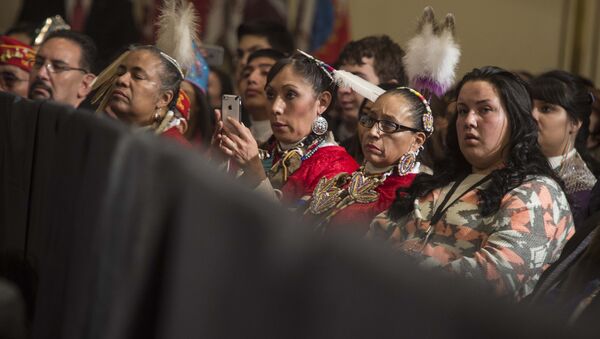The ruling obliges the US Department of Justice to compensate 645 tribes and tribal contractors for underfunding various federal programs in the period from 1994 to 2013.
In theory the initiatives aim to support self-administering tribal communities in a wide range of spheres including education, housing, law enforcement and environmental management.
But in fact, case plaintiffs and some community leaders say the US government has been falling short of fulfilling those duties for many years, contributing to difficult conditions in Native American communities.
“The federal government's conduct was not just cruel and wrong, it was illegal,” said Val Panteah, governor of Zuni Pueblo in New Mexico. “Deep and painful cuts were made every year.”
The final decision is considered “fair and honorable to all the parties involved,” according to Principal Deputy Assistant Attorney General Benjamin C. Mizer, who added that “the result is a settlement that both sides can be proud of.”
Tribal leaders said the money will be directed to help members of American Indian communities to deal with such issues as unemployment, alcoholism, diabetes, all of which plague large segments of the US’ native population.
“I'm very satisfied with this settlement, but in other areas of those treaty obligations we need to work like we did here,” said President John Yellowbird Steele of the Oglala Sioux tribe.




